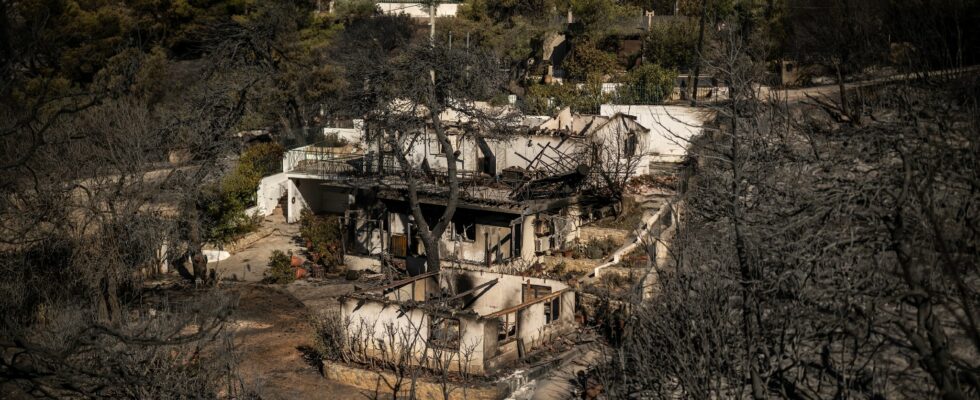As fires have ravaged the Greek landscape for three days, the country has been plunged into a state of shock following the death of a first victim in Patima Halandri on Monday, August 12. A municipality in the northeastern suburbs of Athens, whose approximately 70,000 inhabitants were partly evacuated on Monday.
The victim, who is in his sixties and of Moldovan nationality, was employed in a factory that caught fire late Monday. The distraught owner of the establishment explained to AFP that his body had been found in the toilets at his factory on Monday evening.
Another man at the scene said that other employees fled through the back when the fire broke out, but that the deceased employee was too scared and took refuge in the toilets, thinking she would be safe there.
Thousands forced to flee
In the evening, Halandri Mayor Simos Roussos told ERT public television that he had seen about ten houses destroyed by the fire. Shops, used car parks, coal depots and paint warehouses were also affected. “The fire traveled 50 kilometers and changed direction 10 times,” he said.
Fueled by strong winds, the fire has grown into a 30-kilometre-long blaze, more than 25 metres high in places, according to ERT. It is now the worst wildfire of the year in Greece, forcing thousands of people to flee their homes and wreaking havoc in the surrounding areas of the capital.
“Pines are like a matchstick. And climate change has brought the desert into the woods. This area is close to the forest, so obviously it’s been affected,” says Asterios, a 45-year veteran firefighter from Athens. “These are by far the most serious fires of the summer. Because of the heat. And with the wind, they spread like crazy.”
Reinforcements from six countries
For two consecutive days, most of Athens was covered in acrid smoke and scientists reported an alarming increase in dangerous particles suspended in the air, particularly on the night from Sunday to Monday.
And while the conservative government has since been strongly criticised by the local press, the Greek authorities have called on their allies for help, activating the European Union’s civil protection mechanism.
Thus, firefighters from six countries have reinforced the Greek workforce: 300 additional firefighters from France, Italy and Turkey, among others, were expected on site on Tuesday, August 13, with helicopters, fire engines and tanker trucks. A first contingent of 91 rescuers left France directly from Greece on Tuesday at dawn, AFP noted.
